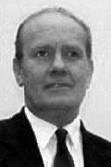
All news on this page courtesy of the The Times & Sunday Times Newspapers, London, UK
The Times: Britain:
July 15 1997

BY MICHAEL HORSNELL
FUNDING for medical research into Gulf War syndrome, and for practical help for sufferers, is to be doubled.
The Government's initiative, announced yesterday, will involve spending £6.5 million over three years. John Reid, Minister for the Armed Forces, said that the new money included £2.25 million for research into the health effects of vaccines and tablets given to troops to protect them against the threat of biological and chemical warfare.
Announcing the move in the House of Commons, he accepted the "debt of honour" owed to the Gulf War veterans when he outlined 20 key areas of practical help. Although there was still no medical or scientific consensus on the syndrome, he acknowledged that victims were frustrated at the lack of progress.
He said: "We have a duty to discharge our responsibilities in respect of those who have served their country. I aim to see we do just that. We want to be open and honest with them and enter into a dialogue with them. They don't want fine words and sympathy, they want practical help."
Tony Flint, 49, co-ordinator for the National Gulf Veterans and Families Association, said: "This announcement is long overdue. I feel great relief that someone is at last listening to us."
Tim Pitman, 26, a fellow veteran and sufferer, said: "I'm overwhelmed. The new Government's approach appears to be much more sympathetic. They recognise that people are ill and dying and are prepared to act."
The research work will be carried out at the Ministry of Defence's Chemical Research Establishment at Porton Down, Wiltshire. About 1,500 veterans have complained of a variety of unexplained symptoms since returning from the Gulf. Some fear they have passed illnesses on to their wives and children. Among symptoms they have complained of are chest problems, wasted muscles, chronic fatigue, memory loss, headaches, cramps and diarrhoea.
Dr Reid, who met veterans' representatives over a working lunch yesterday, said handling of the issue would be guided by three principles. Veterans would have prompt access to medical advice from the MoD Medical Assessment Programme (MAP); the ministry would ensure appropriate research was carried out into veterans' illnesses and factors that might have a bearing on them; and the ministry would make available to the public in general, and to veterans in particular, information of potential relevance.
Dr Reid said in the Commons that he questioned the motives of nobody at the time of the Gulf War. "We took what measures were thought necessary to protect our troops. Like anything else in life, mistakes may have been made. I have asked for explanations of what happened, how it happened, and when it happened."
Dr Reid also announced that no-fault compensation would continue to be provided for sick veterans in addition to normal service pensions. He emphasised that service personnel were entitled to sue for compensation against the MoD on the same basis as employees of other organisations, and that if further investigations or research established liability, the MoD would pay.
The MoD said 1,285 Gulf veterans had applied for pensions, of which some 295 relate to symptoms arising from undiagnosed illness.
| Top of Page | Current Section Index |
|---|